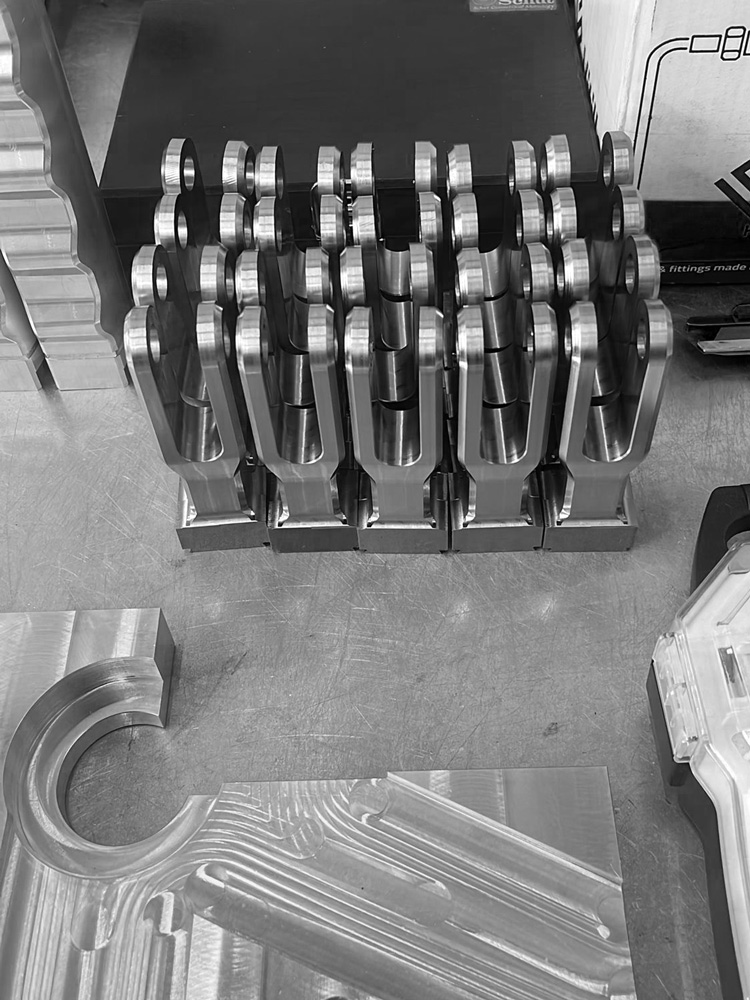Spare Parts Procurement and Replacement for Military Vehicles
Efficient spare parts procurement and replacement are crucial for maintaining the operational readiness, performance, and longevity of military fleets. At Mildasun, we offer a comprehensive and reliable process to ensure your military vehicles are always mission-ready, minimizing downtime and maximizing vehicle effectiveness.
Our Process for Spare Parts Procurement and Replacement
A: Procurement of Spare Parts
✔ Demand Forecasting – Predicting spare part needs based on historical usage, maintenance schedules, and mission requirements.
✔ Standardization – Ensuring that all spare parts comply with military specifications (MIL-SPEC) to guarantee compatibility and quality.
✔ Suppliers and Vendors – Partnering with OEMs and certified suppliers to procure genuine parts, ensuring quality and reliability.
✔ Inventory Management – Maintaining optimal stock levels of high-demand and critical spare parts to minimize downtime.
✔ Procurement Channels – Using government contracts, long-term agreements with OEMs, and local/international suppliers for seamless procurement.
✔ Cost Control – Striking a balance between quality, reliability, and budget constraints to ensure efficient spending
B: Replacement and Maintenance
✔ Scheduled Maintenance – Replacing parts during regular maintenance cycles to prevent unexpected failures and ensure optimal performance.
✔ Condition-Based Maintenance (CBM) – Using sensors and diagnostics to monitor part conditions and replace only when necessary, improving cost-efficiency.
✔ Emergency Repairs – Rapid procurement and replacement of critical parts during mission-critical situations to minimize vehicle downtime.
✔ Retrofit and Upgrades – Replacing older parts with modernized or upgraded components to improve performance or extend the vehicle’s service life.
C: Challenges in Military Spare Parts Procurement
✔ Supply Chain Complexity – Military vehicles often require specialized parts with long lead times and limited suppliers.
✔ Budget Constraints – Balancing the high costs of specialized parts with defense budget limitations.
✔ Obsolescence – Handling parts for older vehicles that are no longer in production, which may require custom solutions.
✔ Counterfeit Parts – Ensuring that all parts meet military standards and are genuine to avoid compromising vehicle safety.
✔ Global Operations – Supporting military vehicles deployed in remote or hostile environments, requiring efficient logistics and supply chain strategies.
D: Technological Solutions
✔ Digital Supply Chain Management – Using advanced software to track inventory, predict part failures, and automate procurement.
✔ 3D Printing (Additive Manufacturing) – On-demand production of spare parts in remote locations or field operations, reducing lead times.
✔ Big Data and AI – Analyzing historical data to optimize inventory management and predict part needs based on usage patterns.
✔ Blockchain Technology – Securing the supply chain and ensuring part authenticity to avoid counterfeit risks.
E: Best Practices
✔ Lifecycle Management – Planning for spare parts needs throughout the entire vehicle lifecycle, from acquisition to decommissioning.
✔ Training – Ensuring maintenance personnel are well-trained to replace and repair parts efficiently and safely.
✔ Part Interchangeability – Designing vehicles with interchangeable parts to simplify logistics and reduce procurement complexity.
✔ Partnerships – Collaborating with suppliers to ensure a steady supply of high-quality parts, enabling seamless repairs.
F: Logistics and Field Support
✔ Forward Stocking Locations (FSLs) – Establishing spare parts depots close to operational areas to reduce downtime and improve response time.
✔ Rapid Deployment Kits – Pre-packaged kits containing essential spare parts to support field operations.
✔ Mobile Maintenance Units – Deployable teams equipped with tools to perform repairs and replacements in the field, reducing vehicle downtime.
G: Regulatory and Security Considerations
✔ ITAR Compliance – Ensuring compliance with international arms regulations when sourcing parts from foreign suppliers.
✔ Cybersecurity – Protecting procurement systems and supply chain data from cyber threats and breaches.
✔ National Security – Prioritizing domestic suppliers and reducing reliance on foreign entities to maintain national security.
Why Spare Parts Procurement & Replacement Matter
Effective spare parts procurement and replacement are essential for maintaining the readiness and effectiveness of military vehicles. By leveraging advanced technologies, adhering to best practices, and ensuring supply chain efficiency, military organizations can ensure their fleets remain mission-capable under any circumstances.
Conclusion
At Mildasun, we understand the critical importance of timely and reliable spare parts procurement and replacement to ensure the operational readiness of military fleets. Our comprehensive process, supported by advanced technologies and strategic partnerships, guarantees that your vehicles stay mission ready and perform at their peak, no matter the circumstances.
